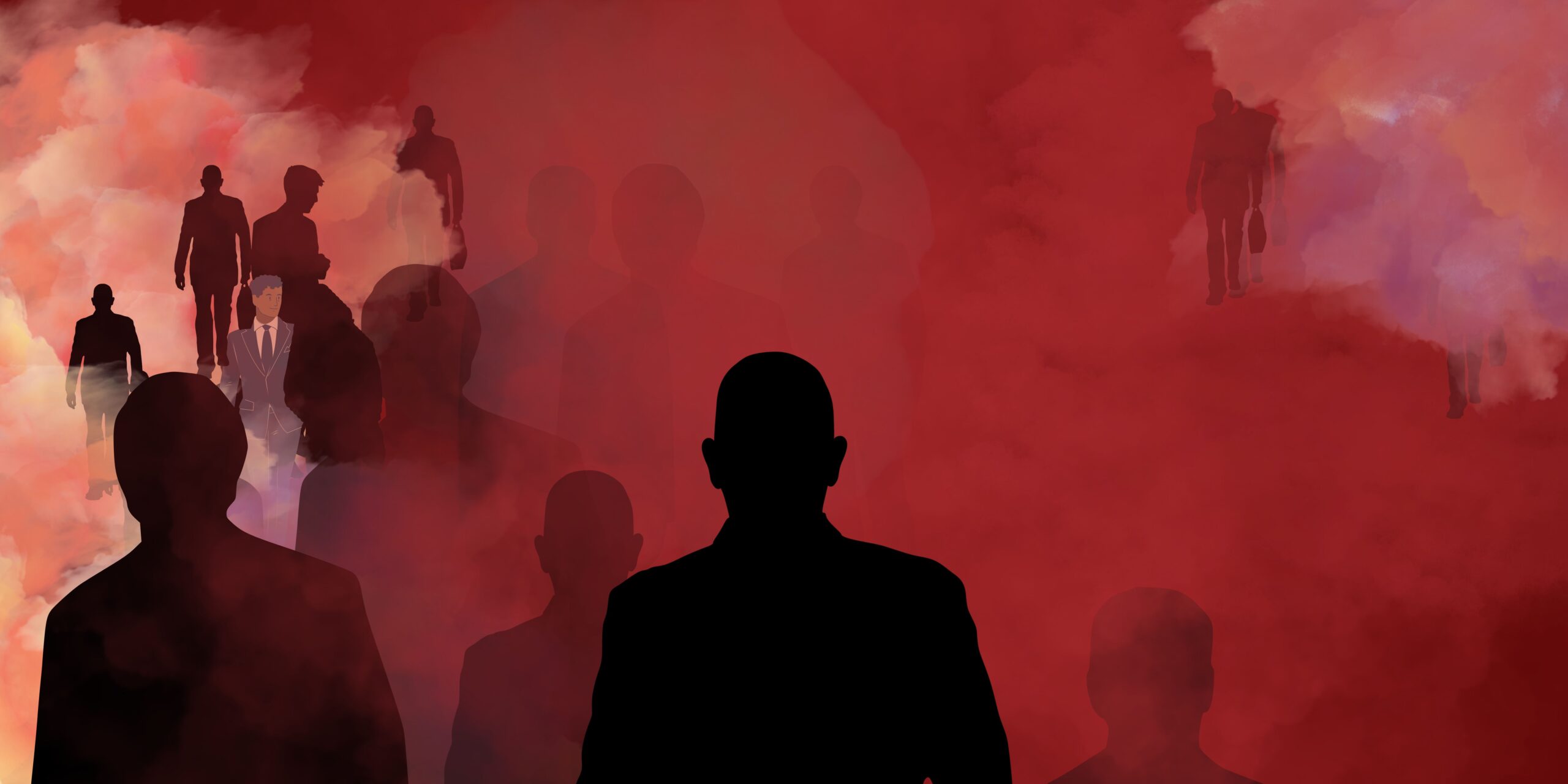“If money is the bond binding me to human life, binding society to me, connecting me with nature and man, is not money the bond of all bonds? Can it not dissolve and bind all ties? Is it not, therefore, also the universal agent of separation?”
Karl Marx
Pakistan has entered its 5th unofficial year of economic turmoil. While the steep decline seems to have become lesser so, the decline still continues.
An Introduction to Pakistan’s Economic Woes
The National Accounts Committee (NAC) said that the average income per person went up a little from $1,551 in fiscal year 2023 to $1,680 in 2024. For reference, it was $1,766 in 2022 and $1,677 in fiscal year 2021.
On top of that, the Pakistani government is planning to raise direct taxes by 48% and secondary taxes by 35%.
This indicates an overall level of decline in the per capita income and a stark increase in taxes. To top it off, this decline is also in the midst of economic and political turmoil.
As a response to the proposed budget, many salaried people have resorted to protests. Banners are held high of #taxkumkaro (lower the taxes). These protests are still not as rage-filled as the table talk in Pakistani households.
What brews at the domestic and psychological level is far more debilitating than one can imagine.
These are the bare figures of the problem.
In this essay, I will attempt to assess how income and taxes impact mental health. I will also discuss what this means in the context of Pakistan.
Income and Mental Health
‘Tax Kum Karo’ is not just about taxes.
It is also about the shockingly low income of the salaried class that has to now pay additional taxes.
Low-income populations usually live under stressful situations. These chronic stressors ratchet up the risk of worsening mental health problems. Economic turmoil has long been linked to dissatisfaction with life. Poverty is associated with greater risk of common mental disorders (Adler et al., 2016).
According to the World Bank, 40% of Pakistanis are already living below the poverty line, with another 10 million hovering just above it.
This is a colossal figure. I argue here that it is far more pernicious than just a matter of sustenance.
It is a matter of psychological and philosophical devastation of an entire nation.
First, let us do a bit of groundwork and understand how the economy interacts with psychology.
How does Income Affect Mental Health?
Shields-Zeeman (2021) conducted a study on the linkage between income and mental health. They found that income is associated with reduced psychological distress and improved health.
So, combing this research with the fact that poverty exacerbates psychological issues, this presents us with an ugly cocktail.
How does Mental Health Affect Income?
A decline in mental health has a significant cost in the productivity of a country.
A decline in physical health also has a substantial cost on the economy.
In fact, poverty is thought to lower people’s ‘cognitive bandwidth,’ which can change how they make decisions and lead to dangerous health behaviors (Schilbach et al., 2016). Knapp and Wong (2020) wrote an entire essay detailing where economics and mental health meet. They cited productivity costs and the cost of illness (COI) as coming through both direct and indirect means.
Moreover, Marcotte & Wilcox-Gök (2001) conclude that 5–6 million workers in the US between the ages of 16 and 54 lose their jobs, don’t look for work, or can’t find work every year because of mental illness. Researchers think that people with mental illness make between $3,500 and $6,000 less a year compared to those who don’t have mental illness.
However, this relationship is even more complex when both directions are considered.
The Complexity
A review by Shields-Zeeman and Smit (2022) found that increases in income were associated with a small improvement in mental health. However, a drop in income had a larger negative influence on psychological well-being.
These findings suggest that the effect of income loss is more detrimental to mental health than an increase in income is for improving mental health.
This has important implications for those living just above or below the poverty line.
Why?
Because a very short drop in income can present these people a substantial risk to income security and mental health.
In Pakistan’s context, these findings have serious implications. This is because a significant amount of people were pushed to a lower socioeconomic class in the last 5 years (Ali, 2022). In fact, many of these crises featured political turmoil and polarization.
Link to Suicide
Another crucial bit of information is that domestic and financial problems are the two most significant reasons for suicide (Naveed et al., 2023). This, in some ways, solidifies a link between financial problems and severe psychological issues.
In fact, it is even more illuminating as the political polarization effects family leadership (Rashid & Rashid, 2024). This in turn could cause many domestic issues. Thus, the economic crisis and the political polarization have both a direct and indirect effect on mental health in Pakistan.
Taxation and Mental Health
Rawls’ (1971/1999) theory of justice says that countries with more progressive taxation had higher ratings of well-being. Meanwhile, countries with less progressive taxation had more negative daily experiences.
This was corroborated by a study conducted by Oishi et al. (2012).
However, in Pakistan, the current taxation is not progressive. This is because, according to the proposed budget, the people who fall inside the ‘middle class’ are also slapped with very similar tax bracket of the more affluent class.
Moreover, many of the taxes actually target the classes which are underprivileged.
The Pakistani Finance Bill was recently changed to raise taxes on business dairy farms and fuel. Builders and investors’ earnings are also taxed at a rate of 10% to 12%. Besides that, there is now a 10% sales tax on office supplies such as notebooks, pencils, pens, ink, staplers, and more.
MNAs’ trip allowances, on the other hand, has gone up from Rs10/km to Rs25/km.
There are also some seemingly ‘soft’ attempts to recover money from those who d o not pay their taxes.
These policies can be seen as pernicious for the people who they do not benefit.
The problem is that the people who do not benefit from this are also the people who no longer possess financial stability.
Another very important finding indicated by Oishi et al. (2012) was that in low income countries, even progressive taxation does not improve well-being.
Trust
It is no secret, however, that these tax demands are not the government’s own policy.
Most of the tax demands arise from the International Monetary Fund’s camp.
The IMF’s key demands include an increase in the tax revenue target, withdrawal of subsidies, taxes on the agriculture sector, increase in levy and taxes on power, gas and oil sectors, privatisation of sick government organisations and units and improving administration, a ministry official was quoted as saying.
The problem here is that this reduces the utility of government action. Once the utility is lowered, so is the level of trust in the population.
Nations are built on philosophical principles. A nation-state that cannot protect its citizens fails to justify its utility.
This can have an even more grievous impact on the national perception of the government. Rothstein and Uslaner (2005) argue that the social trust of a government is in itself a different dimension.
If social trust is lower, many people in the population reject even the better policies. Thus, if the current party in power has any interest in continuing its service in this fragile democracy, their way of handling the economic crisis is failing.
Conclusion
It appears as if the government of Pakistan has yet to understand basic principles of building trust. This trust is not built by documentation on social media about the work trips of chief ministers. Rather, trust is built based on policies which positively affect the people. One could argue that higher taxation is the way to go.
However, when allowances of government officials are increased at the same time, one can question:
Who is the state protecting?
So far, the tentative budget favors the people who are privileged. It allows room for tax evaders. But unfortunately, it strangles those who are already living below reasonable means.
But the protests of ‘tax kum karo’ rage on. One can only hope that at some point, the middle class could find a way into the power corridors of Pakistan. Perhaps, the people who are suffering the most deserve a chance at ruling.
References
- Adler, N. E., Glymour, M. M., & Fielding, J. (2016). Addressing social determinants of health and health inequalities. Jama, 316(16), 1641-1642.
- Knapp, M., & Wong, G. (2020). Economics and mental health: the current scenario. World Psychiatry, 19(1), 3-14.
- Marcotte, D. E., & Wilcox-Gök, V. (2001). Estimating the employment and earnings costs of mental illness: recent developments in the United States. Social Science & Medicine, 53(1), 21-27.
- Naveed, S., Tahir, S. M., Imran, N., Rafiq, B., Ayub, M., Haider, I. I., & Khan, M. M. (2023). Sociodemographic characteristics and patterns of suicide in Pakistan: an analysis of current trends. Community mental health journal, 59(6), 1064-1070
- Oishi, Shigehiro & Schimmack, Ulrich & Diener, Ed. (2011). Progressive Taxation and the Subjective Well-Being of Nations. Psychological science. 23. 86-92. 10.1177/0956797611420882.
- Rashid, Z., & Rashid, S. (2024). Political Instability Causes & Affects. Pakistan Journal of Humanities and Social Sciences, 12(1), 294-303.
- Rawls, J. (1999). A theory of justice (Rev. ed.). Cambridge, MA: Harvard University Press. (Original work published 1971)
- Rothstein, B., & Uslaner, E. M. (2005). All for All: Equality, Corruption, and Social Trust. World Politics, 58(1), 41–72. doi:10.1353/wp.2006.0022
- Schilbach, F., Schofield, H., & Mullainathan, S. (2016). The psychological lives of the poor. American Economic Review, 106(5), 435-440.
- Shields-Zeeman, L., Collin, D. F., Batra, A., & Hamad, R. (2021). How does income affect mental health and health behaviours? A quasi-experimental study of the earned income tax credit. Journal of epidemiology and community health, 75(10), 929–935. https://doi.org/10.1136/jech-2020-214841
- Shields-Zeeman, L., & Smit, F. (2022). The impact of income on mental health. The Lancet Public Health, 7(6), e486-e487.
I am a Clinical Psychologist and a Lecturer of Psychology at Government College, Renala Khurd. Currently, I teach undergraduate students in the morning and practice psychotherapy later in the day. On the side, I conjointly run Psychologus and write regularly on topics related to psychology, business and philosophy. I enjoy practicing and provide consultation for mental disorders, organizational problems, social issues and marketing strategies.





